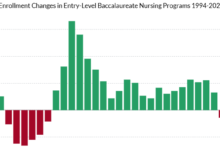The Dark Toll Nursing Takes on My Life

Guest article by Kelsay Irby, BSN, RN
Tristen Kate Smith, a 28-year-old nurse in Ohio, committed suicide on August 7 of this year. She left behind a letter entitled “To My Abuser,” in which she details the things leading up to the taking of her young life.
Her abuser was not a parent or a lover. It was her employer. When abuse comes from someone personal, the victim feels trapped by the tactics employed – they aren’t good enough, the abuser can’t live without them, they appease them and promise things will get better.
The same feeling is true for many of us in nursing. We feel trapped by the labels of ‘hero,’ by the constant pages for help that stress how badly our coworkers and patients need us.
At first we may feel flattered by the pizza parties and company swag we’re given, although we probably soon become disillusioned and patronized by the same. How many of you have said, or at least thought, “We don’t need pizza. We need help.”
“The definition of insanity is doing the same thing over and over again, expecting a different result.” This saying is, in my mind, the unofficial slogan of nursing. We keep asking for help, hoping for different results.
In 2020, the CDC reported suicide as the 12th leading cause of death in this country. A Nurse.org article reports the suicide rate of nurses, both male and female, is significantly higher than the national average.
We are literally killing ourselves to do this job. We went into nursing to help and to serve our communities. However, the conflict between that desire and the continued circumstances in which we find ourselves – not enough staff, not enough support, not enough space in which to contribute to the solution, is taking its toll in ways that are dangerous to both us and our patients.
I wish I could give you a solution to that pattern, but I am at a loss. What I can give you is the dark truth of the personal ramifications of that ‘insane’ behavior.
At the beginning of this year, I began to feel the stress of the publicity after a phone call I made last year, the conflict between myself and my management, and the weight of feeling like I had a huge target on my back. I saw ever more clearly evidence that change was not something that would be forthcoming anytime soon, and I watched helplessly as we continued to be asked to do more with less.
I saw valuable coworkers leave my department. I lost my connection and, even worse, my desire to connect with my patients. I began to feel myself slipping. I lost my joy, not only in my job but in my life.
I am a dedicated introvert outside of work, but this was more than that. I stopped talking to my friends. I pulled back from my boyfriend, from my daughter. I stopped listening to music, I stopped going outside, stopped playing the piano. I started driving too fast and lining up the few medication bottles I had and envisioning myself taking them all. It took everything I had just to keep from driving my car off the road every time I got in it or taking all those pills or just disappearing altogether. It was terrifying.
Obviously, I didn’t go through with it, but I cannot stress enough for you how close it was. Close enough that I almost, ALMOST, didn’t care about the wreckage I would leave behind.
When I googled suicide rates among nurses, the first site that popped up was that of the American Association of Critical Care Nurses. On that site are some practical, to-the-point methods for identifying distress in both ourselves and our coworkers.
For me personally, I had a strange sequence of events that really drove home for me how unhappy I had become. In May, I was injured at work when I was hit by a tech pushing a portable X-ray machine. That freak accident changed my life in ways I hadn’t thought possible.
I’ve been out of work since then on L&I. I required surgery to repair some of the injuries, and I continued in physical therapy. It’s been rough.
I don’t like inactivity. However, an unexpected gift of the whole incident was that I realized how much better I felt emotionally and mentally when I was away from that environment. I realized that I was suffering from a form of Stockholm syndrome, an unhealthy connection to my captors. I also realized that the loss of joy and connection to my patients was not related to a disinterest in the field of nursing altogether but that it was situation-specific.
Through the gift of that time away, I was able to break my connection and my sense of guilt and obligation to my corporation. Once this realization set in, I found myself revitalized and chomping at the bit to explore what other paths might be available in my life and in this career that I love so much, a career and a life I came very close to giving up.
If any of this resonates with you, I encourage you to give yourself the advice you would give a dear friend. Would you tell them to stay, or would you embolden them to do this wild, rebellious thing, to care for themselves?
I’m here to tell you, if there’s a trend I see in almost all of the nurses I have had the privilege to work and speak with, it’s the conflict we often feel between self-care and what we perceive as ‘abandoning’ our patients and coworkers. We almost always tend to give more grace and compassion to others than we do to ourselves
Self-care is NOT a luxury. It’s a necessity. And I will never again lose sight of the importance of caring for myself first.
When I started speaking more publicly about my own struggles, I was both startled and dismayed by the number of nurses who said to me, “Me too. I’ve felt that way too.”
We’ve gotten through Covid, mostly, but now we are facing an epidemic all our own. I realized the #metoo movement we saw so publicly a few years back has some dark parallels with nursing. Women in multiple industries were badgered and manipulated into doing things they found morally abhorrent by people who had something they wanted. Some of them, too, found themselves struggling with an intense desire to escape the pain and conflict they felt.
Nursing is like this too. We do things in our jobs that we never imagined when we entered the field. We ignore call lights, cut corners, snap at worried family members, and rush out of rooms when clearly patients need more humanity from us because we just don’t have the time.
We sacrifice our health and our family lives because what we want is to care for people on their worst days. We’re told that things will be better if we just keep showing up. And when they don’t get better, many of us are made to feel that we are somehow responsible.
At the end of the day, your worth isn’t tied to your ability to work 70-hour weeks – dehydrated, hungry, and defeated. I, your family, your loved ones, and yes, your patients, need you to recognize the uniquely dedicated, talented, compassionate person that you are and to care for yourself as such.
Luckily for me, I was able to find a way out of my personal darkness. If you want to have a discussion with me about how I managed that, please feel free to contact me. My email is below.
Please, if you are struggling, or know someone who is and just want some ideas on how to help, please reach out to someone. Reach out to me at any time. I promise I will respond. If you feel like caring for others is compromising your ability to care for yourself, me too.
Kelsay Irby, BSN, RN
kelsayirby@yahoo.com





